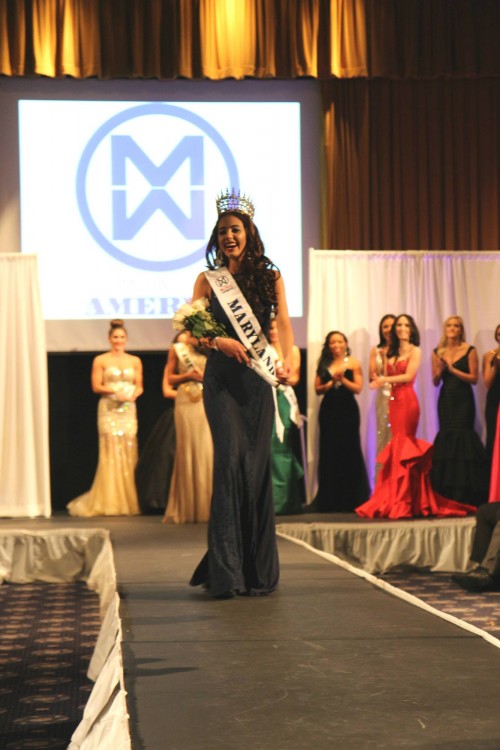There was a time when I seemed healthy and unstoppable. I worked hard, I did not sleep, and I dedicated my life to helping others. My life was a movie. And a glorious one at that. The truth was the façade I showed the world was just that — a façade. An illusion of happiness and wellness.

The reality was I was struggling with my identity, self-mutilation, severe anxiety and obsessive-compulsive disorder (OCD). I had not been diagnosed with borderline personality disorder (BPD) yet during this time, but my struggles with identity and self-harm were symptoms of this serious mental illness. I loved pageantry but I wore a mask to hide the suicidal thoughts and pain I felt every single day.
I had a book published about my battle with anorexia nervosa as a child and my suicide attempts as a teenager. I was candid about my past hospitalizations. I wrote how I was “better now” as an adult. But I wasn’t — I was getting worse by the day. I wanted everyone to think I was cured of mental illness. But that’s not how mental illness works. Mental illness is a slow process to recovery, just like a physical illness can be. But I did not know that then.
I felt by focusing my attention on pageantry and helping others I would never have to face the critical childhood trauma I had experienced. I always expected despite my severe mood swings, depersonalization and self-harm, the pain would go away and I would get better. But I did not.
Even in pageantry and life in the public eye, I experienced significant negative events that further impacted my mental health. After competing in Miss World America 2015 and placing in the top 12 in the nation, I began to search for my own identity outside of pageantry. As a perfectionist, I obsessed over my placement. I did not feel good enough. I slowly began cutting my hair off in search of my own identity — an identity different from the one I had portrayed in pageantry. The thing about borderline personality disorder (BPD) is I can mimic another identity because I do not know our myself. Over the next year, my symptoms worsened. I struggled with suicidal ideation and began isolating myself from family and friends.
After months of worsening symptoms, I experienced a psychotic break on December 30, 2016. I had severe derealization, depersonalization and impulses to crash into a tree. Just to feel something because I had become numb to the world around me. I had been gravely ill for years and my “fake little world” of having it all together began to fall apart in front of me. I could no longer hold it together. I felt embarrassment and shame.
As I turned the steering wheel of my car, I received a call from a friend. I had tried to call her twice before and somehow, by the grace of God, she called me back right in time. She could hear the desperation in my voice and I cried as I explained I could not feel anything. I felt as if I was in a nightmare, watching myself from a distance and I just wanted to get back into my body. I felt by causing myself significant harm I would bring myself back. She stayed calm as I explained this and guided me into driving myself safely to urgent care.
Once I arrived at the urgent care I could hardly hold myself together. The years of pain, sexual harassment, assault, childhood trauma and daily stresses boiled over and caused me to lose touch with reality. The police then came to the urgent care and escorted me to the emergency room.
I am now in my third hospitalization program as a partial hospitalization patient and it has been life-changing. I am learning how to cope with my illnesses and am receiving medications necessary to aid in my normal functioning of life. There is no shame in that and I am feeling better.
I feel myself slowly returning. It will take time to get better, as with any illness, but I have hope in receiving absolute healing through my faith and the counselors and therapists who have been a part of my care. If you are struggling, seek help. Do not be ashamed and do not hide behind a wall of lies. You are not alone and life is not hopeless. There is no shame in being sick. We are human and sometimes we get sick. The key is to not let your illness win. You must win the crown, the trophy, against mental illness every day. You are not alone.
If you or someone you know needs help, visit our suicide prevention resources page.
If you need support right now, call the National Suicide Prevention Lifeline at 1-800-273-8255 or text “START” to 741-741.
We want to hear your story. Become a Mighty contributor here.
Images via contributor

